Custom Exceptions python

Custom exceptions in Python
Custom Exceptions in Python Learn how to create and implement custom exceptions to handle every existing error that may occur in your code Image by storyset on Freepik: <a href=”https://fr.freepik.co...
📚 Read more at Python in Plain English🔎 Find similar documents

Python Exception Handling: Crafting Custom Exceptions for Precise Error Control
In Python, mastering exception handling is essential for writing robust and maintainable code. While Python provides a rich set of built-in exceptions, there are cases when you need to raise custom ex...
📚 Read more at Python in Plain English🔎 Find similar documents
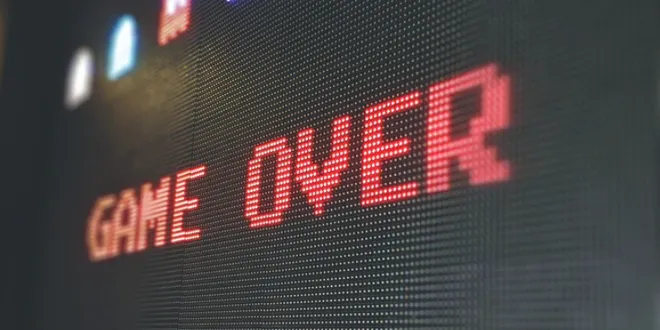
How to Define Custom Exception Classes in Python
In Python, we have the ability to create our own exception classes. The construction of custom exception classes can enrich our class design. A custom error class could logs errors, inspect an…
📚 Read more at Towards Data Science🔎 Find similar documents

Should we use custom exceptions in Python?
Python has so many built-in exceptions that we rarely need to create and use custom ones. Or do we? Custom exceptions: Own your own error. Photo by Brett Jordan on Unsplash Should we use custom excep...
📚 Read more at Towards Data Science🔎 Find similar documents
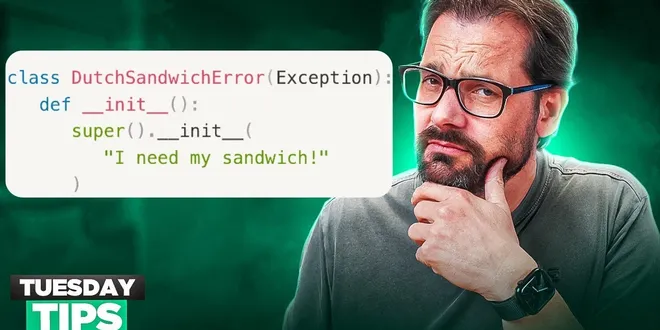
Why You Need Custom Exception Classes
In this video, I’ll show you how to create your own custom exception classes in Python. Stay tuned to find out why you should do that instead of just using the built-in system exceptions. 👷 Join the ...
📚 Read more at ArjanCodes🔎 Find similar documents

Custom Exceptions
Under most circumstances, it is simpler from a code-design standpoint to use existing generic Exception classes when throwing exceptions. This is especially true if you only need the exception to carr...
📚 Read more at Essential Java🔎 Find similar documents

Mastering Python Exceptions
Learn about Python’s built-in exceptions and error handling Photo by Brett Jordan on Unsplash Python, being one of the most popular programming languages, is known for its simplicity and readability....
📚 Read more at Python in Plain English🔎 Find similar documents
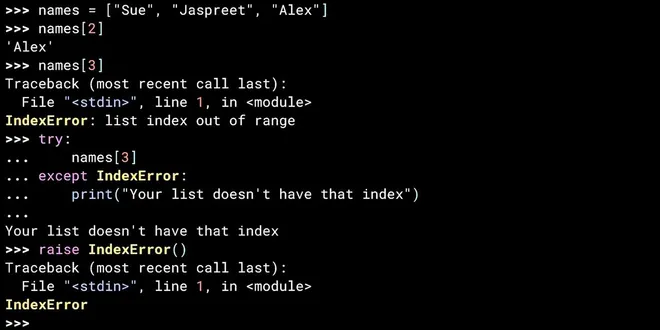
Understanding Python's raise for Crafting Exceptions
This is a preview of the video course, "Using raise for Effective Exceptions." In your Python journey, you’ll come across situations where you need to signal that something is going wrong in your code...
📚 Read more at Real Python🔎 Find similar documents

4.4 Defining Exceptions
User defined exceptions are defined by classes. Exceptions always inherit from Exception . Usually they are empty classes. Use pass for the body. You can also make a hierarchy of your exceptions. Exer...
📚 Read more at Practical Python Programming🔎 Find similar documents

Python Exceptions — What, Why, and How?
Python Exceptions — What, Why, and How? Understand how Exceptions work in Python and how to to use them properly Photo by Erwan Hesry on Unsplash What is an Exception? Exceptions are like some irrita...
📚 Read more at Towards Data Science🔎 Find similar documents
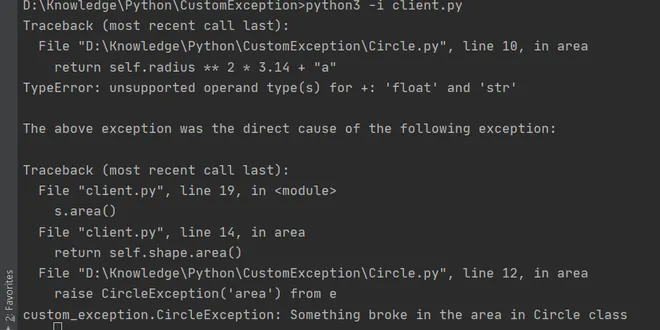
Python: Writing Custom Exceptions is easier than you might think
Handling runtime errors in Python is pretty easy. You just have to put the code in a try-except block and handle the exception from many of builtin exception types provided by Python. Given below is…
📚 Read more at Towards Data Science🔎 Find similar documents
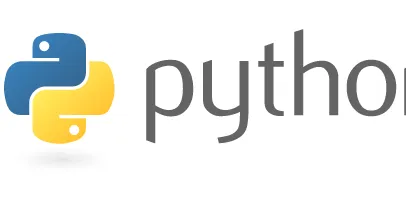
Built-in Exceptions
Built-in Exceptions In Python, all exceptions must be instances of a class that derives from BaseException . In a try statement with an except clause that mentions a particular class, that clause als...
📚 Read more at The Python Standard Library🔎 Find similar documents


